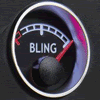Some more info

Solid Copper Head Gaskets
Compared with a composite head gasket, the solid copper version has both good & bad points. Its main strengths are that copper is a near perfect heat conductor, and that a “blow-out” is highly unlikely even with high turbo boost & nitrous oxide.
On the down side, solid copper is almost incapable of sealing either combustion or water & oil pressure by itself! It is the same thickness at all points, and will not “fill” variations between block & cylinder head surfaces in the way that a soft composite gasket can (so the thickness of the copper will not have any effect on its sealing ability). Both the cylinder block & head must be completely flat, with the best surface finish you can achieve. Failure to ensure this will lead to gasket failure. Please also pay special attention to the annealing process (see below). Please note that a solid copper head gasket is never the answer to a basic head gasket failure, and should only be considered when the original gasket is no longer suitable. As a solution to a strength problem the solid copper version can be almost unbeatable providing the utmost care is taken during engine machining & preparation.
Sealing combustion pressure - There must be some device present to create extra clamping pressure around the cylinder bore. Choices include-
Wire rings - A groove of a certain width & depth is machined into the block concentric with the bore. E.g. – a 39 thou wide, 35 thou deep groove will accept 40 thou solid wire to give a snug fit and 5 thou protrusion. I would suggest setting wire protrusion to be approx 10% of copper gasket thickness. (Not suitable for blocks fitted with thin wall liners). This is the most “aggressive” method of sealing and is probably the easiest & cheapest solution. For extra sealing a “receiver” groove can be machined into the head.
Ferriday Sealing Rings (“FSR”, Patent applied for) - A special Stainless Steel sealing ring is laid on top of the copper gasket to create extra clamping load. Each ring has 3 “ears” that locate into corresponding holes in the copper gasket for ease of assembly; clamping forces then keep the FSRs in place. FSRs are much cheaper than Wills rings, may be re-usable providing they are not damaged, and are compatible with blocks fitted with thin wall liners. Block & head flatness is very important.
Wills Rings - Are available in various sizes and are often gas-filled. These have been regarded as the ultimate in cylinder sealing & can be found in some F1 engines. A substantial groove must be machined into the block or head - width & depth work in a similar way to wire grooves (see above). Wills rings are relatively expensive and sometimes have to be made to order, some engines will not have enough space between the cylinders to accommodate the ring. It is possible to use the copper gasket as a “carrier” for the Wills rings and so avoid machining a groove. Please contact me for more details.
Liner heights (Wet Liner Engines Only) - If the liner height is set to around 3 “thou” above the block face, then this will create the same clamping load as Stainless Steel rings (or machine the liners flush with the block deck & use Ferriday FRS’s).
Double Sealing – If there is enough space between cylinders an extra strong seal can be created by using a wire ring at a large diameter as well as FSRs. Properly done, this appears to work extremely well, please call & I’ll describe in more detail.
Annealing – Hang the gasket on a wire hook, and use a blowtorch (not Oxy-Acetylene - too hot!) to heat the copper until it is cherry red. Start at the bottom and work upwards, preferably in a dark room for easy visibility, until the entire gasket has been treated. Allow to cool slowly! Do not quench, bead-blast or bend the gasket. Remove oxidation with fine wire wool.
Assembly Suggestions for FSRs, and Water & Oil Passages - Place the FSRs onto the copper gasket & bend the locating “ears” into the corresponding holes on the gasket – use a ballpoint pen or similar. Remove the FSRs until later.
A layer of modern chemical sealant is usually enough to seal the oil & water galleries. My choice is a high temperature non-setting sealant that remains fluid enough to allow gasket movement as the engine goes through the heat cycle. WellSeal & Hylomar Universal Blue also work well.
Apply a bead of sealant around each water & oil passage on both sides of the head gasket, but be careful not to let any particles or bits of debris attach themselves to the sticky sealant.
Place the copper gasket onto the block, ensuring it is the right way up ( ! ), and put the FSRs into their correct position. Assemble the head following the usual tightening sequence & torque pressure. Follow the bolt manufacturers torque instructions, and be sure to lubricate the threads & underside of the bolt head. If using conventional bolts (i.e. not stretch bolts) I would suggest re-checking bolt torque after the initial warm-up period, then again after a period of running. A micro-thin copper gasket or rubber 0-rings can be used to help seal pressurized oil galleries and other problem areas – please ask for more details.
Is A Copper Head Gasket The Right Choice? - I would suggest that if a conventional head gasket is still suitable for your job then this should be used - Solid Copper can be especially useful for high-powered engines that have suffered failures with conventional gaskets, and should be considered only as a hard-core competition component.
Although a similar formula can be applied to most head gaskets, what works well for one engine may not be suitable for other applications; the right combination of sealant, liner protrusion, oil pressure sealing, bolt type & bolt torque must be found to achieve the desired results. No suggestion or guarantee is made that a slab of solid Copper will sort out your cylinder sealing problems, though copper gaskets with FSRs have proven to be successful in applications where other gasket solutions have failed. Danny Kirk suffered failures with all gasket types in his high power Cosworth YB engine, but has found the FSR system to be completely reliable while running 11.1 second standing quarters in his Sierra road car. After over 100 drag-strip runs plus road driving, Danny re-used both the head gasket & sealing rings when he did a “freshen-up” engine rebuild. Help over the phone is available should you need it - speak to Mike Tanski on 01785 621710.
Mike Tanski.









